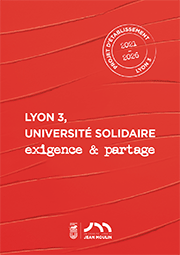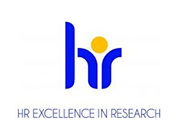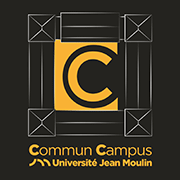AccueilRechercheLes productions scientifiquesThèsesThèses soutenuesThèses soutenues - 2006-2020Thèses soutenues - 2013
-
Partager cette page
- Recherche,
YOUNES Myriam
Démocratie et terrorisme au Proche-Orient
Thèse en Droit soutenue le 27 septembre 2013.
À l'aube du troisième millénaire, la démocratie fait face à deux défis différents. D'une part, elle est secouée par le terrorisme qui bafoue les principes et les valeurs démocratiques tout en déstabilisant les institutions et en menaçant les citoyens et même la nation. D'autre part, la démocratie peut être défiée par les dérives d'une lutte contre le terrorisme, non-proportionnelle et même excessive, menée par certains régimes « démocratiques ». Sous prétexte de contrer le terrorisme, la pratique de certains États démocratiques fragilise l'État de droit et révèle des violations des droits de l'homme et des libertés fondamentales. Cette étude se propose de rechercher l'infrastructure légale qui répond à la lutte contre le terrorisme sans nuire aux principes et valeurs démocratiques. Elle met en exergue la contradiction entre les deux concepts : démocratie et terrorisme. Cette étude aborde deux sujets d'actualité qui revêtent une importance particulière. Le premier porte sur la création du Tribunal Spécial pour le Liban [TSL] comme étant la première juridiction internationalisée à juger les actes relevant du terrorisme. Le second présente une étude comparatiste portant sur les « révolutions » survenues dans les pays arabes tout en mettant en évidence la nécessité de l'acheminement vers la démocratie face à la montée du terrorisme dans la région. Cette étude expose de même un panorama de la lutte des États du Proche-Orient contre le terrorisme. Elle projettera les conditions pour sortir d'une démocratie « masquée », éclatée par le terrorisme, à une démocratie « authentique », éclatante par le droit.
On the dawning of the third millennium, democracy is encountering two different challenges. On the one hand, it is shaken by terrorism that flies in the face of the democratic principles and values whilst destabilizing the institutions and threatening citizens touching even the nation itself. Notwithstanding the fact that on the other hand, democracy could be challenged by non-proportional and even excessive measures taken in the context of the fight against terrorism acquitted by certain “democratic” regimes. Thus, under the pretext of countering terrorism, the behavioural pattern of some democratic states undermines the State of law and unveils violations of human rights and fundamental liberties. The current study aspires to investigate the legal infrastructure that conforms to the fight against terrorism away from compromising the principles and values of democracy. For this purpose, the following pages would highlight the dialectic contradiction between two concepts: democracy and terrorism. In fact, the current study treats two hot topics particularly significant. The first of those topics would be the establishment of the Special Tribunal for Lebanon [STL] being the first internationalized with jurisdiction over the acts of terrorism. The second of the above-mentioned topics would be a comparative study treating the current « revolutions » occurring within the Arab States, hence highlighting the need to pursue democracy versus the rise of terrorism in the region. Moreover, this study would exhibit a prospect of the fight against terrorism carried out by countries of the Near East. In addition, this study exposes some conditions by which a « disguised » democracy would be avoided, one that is struck by terrorism, towards an « authentic » democracy, striking with rights.
Mots-clés : Acte terroriste ; Constitution ; Démocratie ; Droits de l'homme ; État de droit ; Libertés fondamentales ; Lutte contre le terrorisme ; Proche-Orient ; Révolution ; Terrorisme ; Transition démocratique ; Tribunal Spécial pour le Liban [TSL].
Keywords : Terrorist act ; Constitution ; Democracy ; Human rights; Rule of Law ; Extremism ; Fundamental freedoms ; Fight against terrorism ; Near East ; Revolution ; Terrorism ; Democratic transitions ; Special Tribunal for Lebanon [STL].
Directeur de thèse : Thierry DEBARD
- Thierry DEBARD, Professeur, Université Jean Moulin Lyon 3
- Michel CLAPIE, Professeur, Université Montpellier 1
- Guy GUILLERMIN, Professeur émérite, Université Pierre Mendès France - Grenoble
- Mireille COUSTON, Professeur, Université Jean Moulin Lyon 3
- Issam MOUBARAK, Professeur, Université Libanaise (Beyrouth – Liban)
Président du jury : Mireille COUSTON
Mention : Très honorable
Equipe d'accueil : Equipe de droit public



